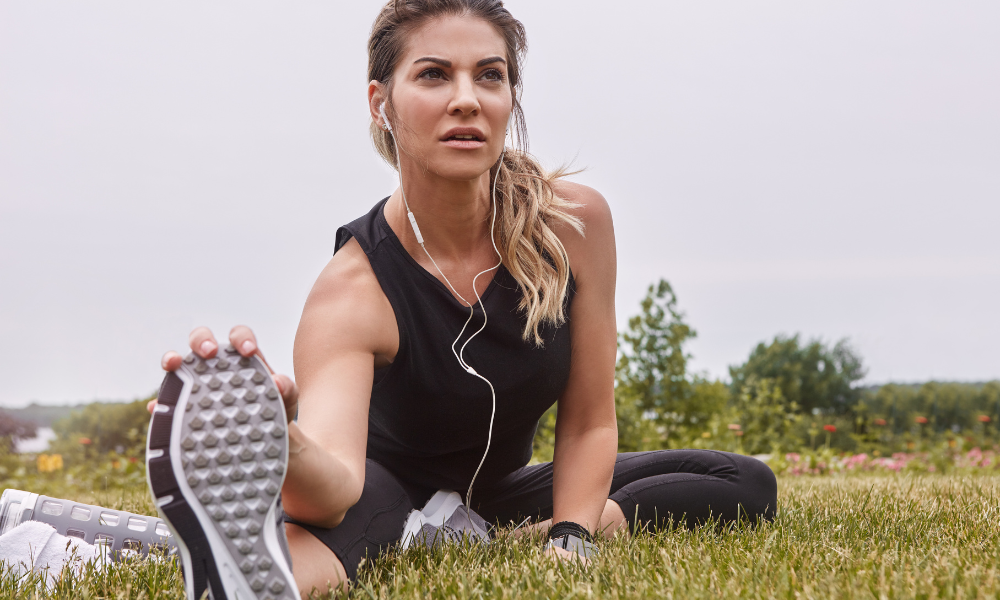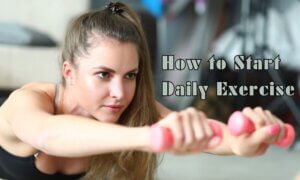Contents
- 1 Fueling Your Workouts: Pre- and Post-Exercise Nutrition Tips
- 1.1 Pre- and Post-Exercise Nutrition: The Key to Elevating Your Workouts
- 1.2 Understanding Pre-Exercise Nutrition
- 1.3 The Importance of Pre-Workout Fuel
- 1.4 Macronutrient Balance
- 1.5 Hydration Strategies
- 1.6 Pre-Workout Nutrition Tips
- 1.7 Context and Timing Are Crucial
- 1.8 Sustaining Energy from Carbohydrates
- 1.9 Proteins That Help Muscles
- 1.10 Energy-Conserving Fats
- 1.11 Skipping Big Meals
- 1.12 Post-Exercise Nutrition Tips
- 1.13 Improvement and Regeneration After a Workout
- 1.14 Consuming Protein to Promote Muscle Recovery
- 1.15 Refueling Glycogen Stores with Carbohydrates
- 1.16 Important Vitamins and Minerals
- 1.17 Tailoring Nutrition to Your Workout Type
- 1.18 Training for Endurance
- 1.19 Resistance Exercises
- 1.20 Interval training at a high-intensity
- 1.21 Exercising Your Flexibility and Stability
- 1.22 Supplements: Are They Necessary?
- 1.23 Cons and Pros of Taking Supplements
- 1.24 Suggested Vitamins and Minerals
- 1.25 Pre- and post-workout hydration
- 1.26 Hydration Is Crucial
- 1.27 Hydration Before Exercise
- 1.28 Hydration After Exercise
- 1.29 Common Mistakes in Pre- and Post-Exercise Nutrition
- 1.30 Neglecting to Eat Before a Workout
- 1.31 Overuse of Protein Shakes
- 1.32 Exercise-Induced Overeating
- 1.33 Neglecting one’s own needs
- 1.34 Balancing Nutrition and Weight Management
- 1.35 Keeping the Energy Levels Even
- 1.36 Weight Loss and Physical Prowess
- 1.37 Gaining Mass and Muscle Mass
- 1.38 Creating a Personalized Nutrition Plan
- 1.39 Meeting with a Dietitian
- 1.40 Aiming Reasonably
- 1.41 Keeping Tabs on Things
- 1.42 Staying Consistent and Adapting
- 1.43 Forming Long-Term, Healthy Routines
- 1.44 Managing Your Fitness as It Evolves
- 1.45 Time-Related Nutritional Intervals
- 1.46 The Mind-Body Connection
- 1.47 Techniques for Eating Consciously
- 1.48 Identification of Emotional Eating
- 1.49 The Benefits of Mental Imagery
- 1.50 Avoiding Fad Diets and Trends
- 1.51 Being Aware of the Dangers
- 1.52 The Value of Moderation
- 1.53 Listening to Your Body
- 1.54 Indicators of a Healthy Diet
- 1.55 Determining the Presence of Malnutrition
Fueling Your Workouts: Pre- and Post-Exercise Nutrition Tips
Introduction
To get the most out of your workouts, you must pay close attention to what goes into your body. Proper pre- and post-workout nutrition has improved performance, sped recovery, and maximized fitness gains. This article will help you get the most out of your workouts by discussing the significance of pre- and post-exercise nutrition.

Pre- and Post-Exercise Nutrition: The Key to Elevating Your Workouts
Understanding Pre-Exercise Nutrition
It’s crucial to provide your body with the nutrients it needs before doing any sort of physical activity. The best workout results can be achieved with a proper pre-exercise diet. Meal timing, macronutrient balance, and staying hydrated are the three most important aspects of pre-workout nutrition.
The Importance of Pre-Workout Fuel
Many think they may burn more fat by working out on an empty stomach. However, exercise without adequate nutrition can result in exhaustion, diminished stamina, and even muscle catabolism. Pre-workout nutrition supplies your muscles with the necessary glucose to perform at their peak.
Macronutrient Balance
A pre-workout diet relies heavily on getting the correct carbs, proteins, and fats. Muscles get their fuel primarily from carbohydrates, while proteins aid in muscle maintenance and repair. Healthy fats help you keep going longer in your workouts.
Hydration Strategies
Maintaining performance and avoiding dehydration-related problems depend on getting enough water. Drink water steadily throughout the day leading up to your workout, and maybe even have a small bit right before you start moving around so that you’re well-hydrated but not uncomfortable.

Pre-Workout Nutrition Tips
Here are some fundamental guidelines to help you get the most out of your pre-workout meal:
Context and Timing Are Crucial
The body needs time to digest and turn nutrients into energy, so eating a balanced meal 1–3 hours before working out is ideal. A little snack 30 minutes before physical activity may be sufficient for people with tight schedules.
Sustaining Energy from Carbohydrates
Eat some complex carbs, such as whole grains, fruits, and veggies, before you work out. They give you a consistent flow of energy that keeps you going strong throughout the workout.
Proteins That Help Muscles
Incorporate some lean protein into your pre-workout diet. Protein-rich foods like Greek yogurt, chicken, and tofu are great options for promoting muscle performance and repair.
Energy-Conserving Fats
Eat some healthy fats, such as avocados, almonds, and olive oil, before you hit the gym. These lipids supply long-lasting energy, allowing for more time spent training hard.
Skipping Big Meals
If you want to avoid discomfort and fatigue throughout your workout, avoid eating a big or oily meal right before you get started.

Post-Exercise Nutrition Tips
The Importance of Refueling After Exercise
After a workout, your body requires specific nutrients to help it recuperate and reap the full advantages of the session. Muscle repair, glycogen replenishment, and general recovery are all greatly aided by a proper diet immediately following exercise.
Improvement and Regeneration After a Workout
Nutritional supplementation for muscle repair and growth is most effective during the “anabolic window,” the time immediately following exercise when the body is most receptive. Take advantage of this window of opportunity by eating a healthy dinner or snack after your workout.
Consuming Protein to Promote Muscle Recovery
After a workout, your muscles need a steady supply of protein to help them recover and get stronger. Chicken, fish, other seafood, and vegetarian and vegan substitutes are great options.
Refueling Glycogen Stores with Carbohydrates
Restoring energy levels by replenishing glycogen stores after strenuous activity is essential. Carbohydrates like bananas, sweet potatoes, and rice are simple to digest and help jumpstart healing.
Important Vitamins and Minerals
Vitamin- and mineral-rich foods can help you feel better and recover faster. Pick foods like leafy greens, colorful fruits, and nuts for micronutrients.

Tailoring Nutrition to Your Workout Type
The demands on the body by various forms of exercise are not all the same. You need to adjust your diet to get the most out of your workouts.
Training for Endurance
Carbohydrates are essential for endurance training since they keep energy levels up for lengthy periods. Beneficial are the slow-release carbohydrates found in oats and quinoa.
Resistance Exercises
Getting enough protein after lifting weights will help your muscles recover and strengthen. Combine it with carbs for stamina and healthy fats for lubrication of the joints.
Interval training at a high-intensity
A HIIT workout needs a combination of carbohydrates and proteins for rapid energy and muscle support during intense intervals.

Exercising Your Flexibility and Stability
Although less taxing on the body’s energy reserves, a balanced diet is nevertheless recommended for these activities. Choose foods high in nutrients to give your body the fuel it needs.
Supplements: Are They Necessary?
Nutritional supplements are helpful but are not meant to replace a balanced diet. Discuss the benefits and drawbacks of supplements and suggest solutions.
Cons and Pros of Taking Supplements
Nutritional gaps can be filled with supplements, which is especially helpful for those with dietary limitations or who train extensively and frequently. However, they should not be used in place of a healthy, varied diet.
Suggested Vitamins and Minerals
Protein powder, creatine, branched-chain amino acids (BCAAs), and omega-3 fatty acids are all regularly recommended supplements. Never start taking supplements without first talking to your doctor or a nutritionist.
Pre- and post-workout hydration
Drinking plenty of water throughout the day is crucial for health and athletic performance. How your body responds to exercise is greatly influenced by how well you hydrate before and afterward.

Hydration Is Crucial
The negative effects of dehydration on exercise performance, weariness, and recovery are well-documented. Maintaining proper hydration throughout the day requires regular water consumption.
Hydration Before Exercise
Drink plenty of water in the hours before working out. It is recommended to hydrate by drinking 16-20 ounces of water 2-3 hours before exercise and another 8–10 ounces 20–30 minutes before beginning physical activity.
Hydration After Exercise
Drink water or an electrolyte-rich beverage to rehydrate your body after exercise. To aid in healing and prevent dehydration, replenish any fluids lost through sweat.

Common Mistakes in Pre- and Post-Exercise Nutrition
If you want to get the most out of your workouts and reach your fitness objectives, avoiding some common nutrition errors is important.
Neglecting to Eat Before a Workout
Avoiding pre-workout nutrition can reduce performance and increase the risk of muscle breakdown. Eat something healthy before every workout.
Overuse of Protein Shakes
As convenient as protein smoothies may be, they are not a substitute for eating real meals. When compared to processed diets, whole foods offer a more comprehensive spectrum of nutrients.
Exercise-Induced Overeating
Although replenishing your body with nutrients after exercise is essential, you shouldn’t overdo it because you feel you “earned” it. Maintain a healthy diet with a well-balanced post-workout meal and snack.
Neglecting one’s own needs
Remember that a person’s specific nutritional needs will vary depending on their age, gender, size, and amount of physical activity. Modify your diet to fit your requirements.
Balancing Nutrition and Weight Management
Maintaining weight loss success over the long term requires balancing nutritional requirements with weight loss objectives.
Keeping the Energy Levels Even
The number of calories consumed should balance the number of calories expended through physical activity and daily tasks. Strive for a middle ground that enables your workouts without causing unhealthy swings in your weight.
Weight Loss and Physical Prowess
To lose weight, you must consume fewer calories than your body uses up while maintaining your nutritional levels. Crash diets can have negative effects on your health and performance.
Gaining Mass and Muscle Mass
Focus on a small calorie surplus and prioritize protein intake to gain weight and develop muscle.
Creating a Personalized Nutrition Plan
Everyone has different nutritional requirements because of this. Make sure your diet is as well-thought-out as your exercise routine.

Meeting with a Dietitian
Consult a qualified dietitian or nutritionist if you need help developing your own unique strategy. Their advice will be specific to your needs and health situation.
Aiming Reasonably
Plan your diet and exercise routine with specific, measurable goals. Honor your progress thus far and use it as inspiration to press on.
Keeping Tabs on Things
Keep an eye on how well your nutrition plan works by tracking your performance and energy levels. To ensure steady progress, make necessary changes.
Staying Consistent and Adapting
The key to long-term success is maintaining a consistent effort. Modifying your diet as your exercise level and objectives evolve is also important.
Forming Long-Term, Healthy Routines
Establish regular, healthful eating habits. Maintaining a normal eating routine will improve your results over time.
Managing Your Fitness as It Evolves
Increases in energy consumption and musculature demands may necessitate a shift in your dietary priorities as your fitness level rises.

Time-Related Nutritional Intervals
Adjust your diet and training to coincide with specific cycles and milestones. Doing it this way can ensure your body gets all the nutrients it needs at the correct times.
The Mind-Body Connection
The mind-body link is crucial to our approach to healthy eating and regular physical activity.
Techniques for Eating Consciously
Attention to internal indicators of hunger and satiety is a key component of mindful eating. Savor every bite of your food by eating in peace.
Identification of Emotional Eating
Learn to identify situations that lead to emotional eating and develop coping mechanisms other than eating.
The Benefits of Mental Imagery
Visualization techniques can be extremely effective in achieving your fitness objectives. Visualize yourself making wise food choices and achieving your fitness goals.
Avoiding Fad Diets and Trends
Don’t give in to the allure of quick-fix trends or fad diets. Results from healthy eating and regular exercise tend to last.
Being Aware of the Dangers
Inadequate nutrition from fad diets may lead to health problems down the road. Instead, prioritize eating healthy, nutrient-rich foods.

The Value of Moderation
The key to a healthy diet is moderation. Indulge occasionally while maintaining a healthy lifestyle.
Listening to Your Body
If you want to know if your nutrition plan is working, pay attention to your body’s cues.
Indicators of a Healthy Diet
If you have more stamina, are more productive, and recover faster, your diet is on the right track.
Determining the Presence of Malnutrition
Signs of nutritional deficiency include extreme tiredness, a lack of muscle strength, or a high disease incidence. If you are concerned about your health, see a doctor.
Amazon sells a plethora of popular and highly regarded multivitamins and minerals from well-known brands. There are a lot of books out there, so I took it upon myself to select some of the best of the bunch, and they all have great ratings and are considered bestsellers.

Conclusion
- You may get the most out of your workouts and speed up your progress toward your fitness objectives by eating well before and after you go out. Getting enough of the correct nutrients can boost performance, speed up muscle recovery, and improve your health and well-being in general. It’s important to ensure your diet is appropriate for your workouts, body, and goals. Maintaining a healthy diet requires dedication, moderation, and awareness.
- Eat plenty of fruits and vegetables and a range of nutritious grains, lean proteins, healthy fats, and healthy protein sources. Drink water consistently and pay attention to your body’s cues to ensure you stay well-hydrated throughout the day.
- Don’t give in to the pressure of trendy diets that claim to deliver instant results. Instead, work on creating long-term improvements to your habits that will benefit your health and fitness.
- You can maximize your exercises and gain more if you eat right before and after each session. Remember that your mental and physical health are intertwined, and use this knowledge to your advantage by engaging in some regular visualization and mindfulness exercises.
- Finally, be patient with yourself and commemorate your progress. It takes time to form healthy habits, and the results may not be linear. Maintain focus on your objectives, pay attention to your body’s cues, and adjust your diet as needed to see steady progress.








